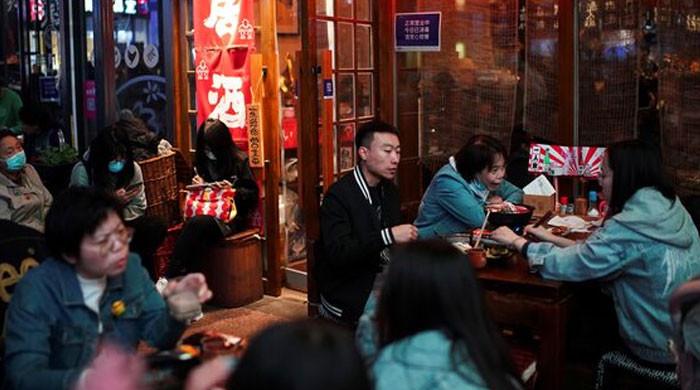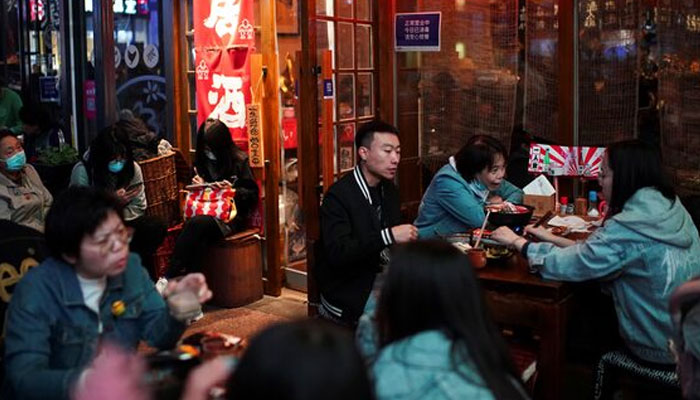Some Chinese civil servants are now prohibited from dining out in groups larger than three, following a series of alcohol-related deaths at official banquets as part of a broader austerity initiative aimed at curbing extravagant spending in the public sector.
New regulations implemented in May specifically target Communist Party members, banning lavish banquets, unnecessary infrastructure projects, and luxurious amenities in work settings.
Analysts interpret this renewed emphasis on austerity as an indication of President Xi Jinping’s ongoing commitment to anti-corruption and party discipline, suggesting that past measures have fallen short.
Alfred Wu, an associate professor at the National University of Singapore, highlights the severity of the drinking culture among civil servants but critiques the government’s “one size fits all” approach to regulation.
“While Beijing wants to boost consumption, clean government — which is Xi’s fundamental priority — has a price,” said Wu.
The measures come after three widely publicised cases of cadre deaths since April linked to excessive drinking at banquets. Dozens of officials have been punished in connection to the deaths in Hunan, Anhui and Henan provinces, where they attempted to conceal details of the banquets and privately compensate the families of the deceased.
Rare outpouring of complaints
But new dining guidelines promoted by some localities this week go even further, asking cadres to be wary of social gatherings, not treat bosses or underlings to meals, and avoid “forming small cliques”, according to a social media post by a Communist Party body in Anhui province.
“When dining with ordinary colleagues, groups of under three are usually fine,” read the post, titled ‘does it violate regulations to dine with colleagues after work’.
“Avoid dining in high-end places, do not constantly meet the same people, do not take the opportunity to form ‘small cliques’.”
The guidance triggered a rare outpouring of complaints on social media from one of the most tightly-controlled groups in China, who increasingly feel that their personal lives are subject to excessive and arbitrary restrictions.
“Eating alone is hedonism, eating in a pair is engaging in improper male-female relations, eating in a trio is forming small cliques,” read a comment from a user in Hunan province with over 3,500 likes.
“Three of us colleagues went out for hotpot at lunch and each of us were punished with a warning,” wrote a civil servant in Shandong province.
“This is overcorrection, the essence of the guidelines is not wasting public money on lavish banquets but at each level of bureaucracy it gets enforced more harshly,” wrote a user in Guangxi region.
A civil servant in Sichuan province said her colleagues were ordered to always go straight home after work. Another cadre in Anhui province said her office recently started implementing daily breathalyser tests, while one in Shaanxi province said she was told to get rid of her office plants.
Another civil servant in Gansu province was asked to study a list of 20 types of dinner gatherings to avoid, while a state-owned enterprise worker in Wuhan was ordered not to eat lunch with colleagues from other departments or bosses.
“Our leader stressed that even if I invite someone in our canteen, spend little and pay the bill, that’s not allowed”, citing Party discipline, she said.
Some cadres in Anhui even reported cold calls from local discipline inspectors asking them to recall the rules from memory or be reported to their supervisors.
However, three civil servants in Beijing, rural Guangdong province and Chongqing told Reuters their workplaces did not have excessive implementation.
Others told Reuters they welcomed the regulations, as they hated being peer-pressured into drinking with their bosses.
The rules supplement the “eight-point regulations”, a code of conduct intended to curb rampant corruption in China’s vast bureaucracy, which Xi launched soon after taking power in 2012.
The number of cadres nationwide punished for violating the 2012 thrift regulations ballooned from 9,292 in February to over 16,500 in April, the latest month for which figures are available.


